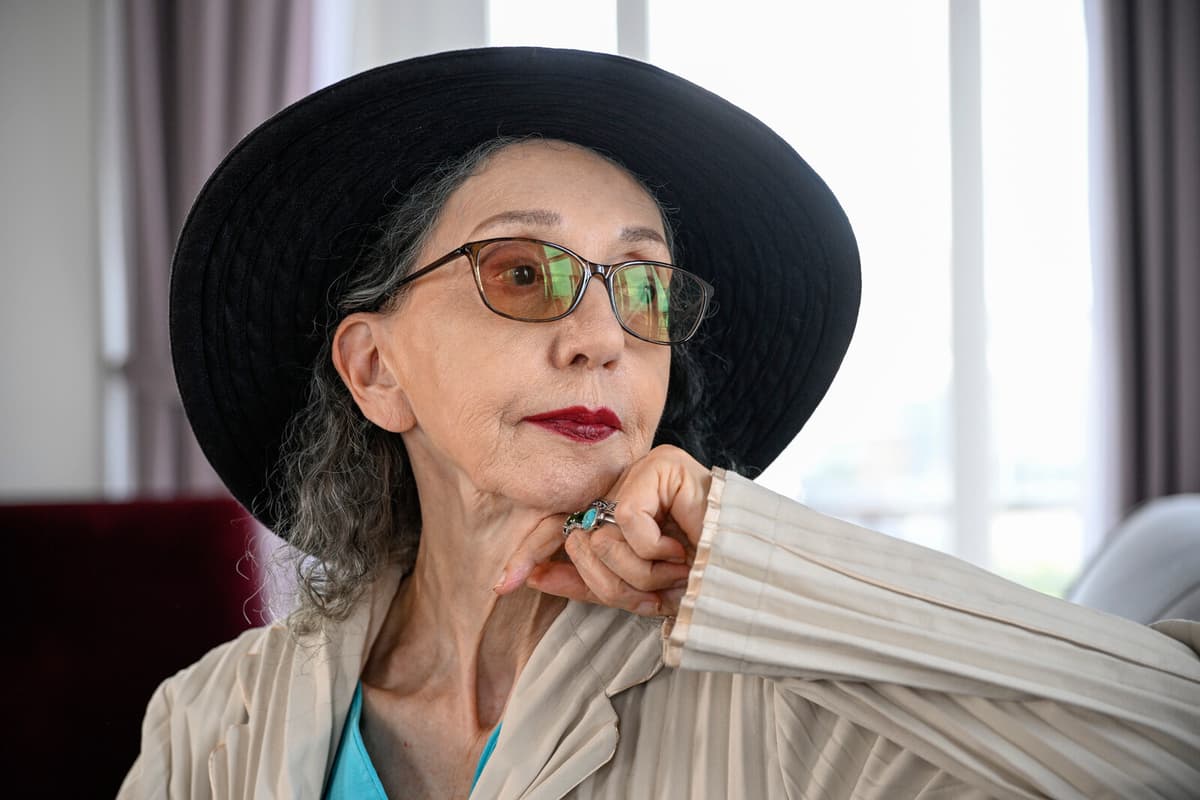In a few days, Joyce Carol Oates can add a newly instituted Mermaid Award from the Book Fair in Gothenburg to her list of merits. The list already boasts literary awards from six decades of authorship, but that doesn't diminish the joy.
I've never heard of the prize, but I look forward to meeting everyone. It's always wonderful to come to Sweden.
Today, "Snitt" is being published in Swedish. This, her 63rd novel, takes place inside a nightmarish mental hospital for "female lunatics" in New Jersey during the first half of the 19th century.
Historical Model
At the center stands hospital director Silas Weir – revered by his contemporaries as a pioneer in psychiatry and gynecology. In reality, a butcher with religious megalomania who performs clumsy and brutal surgical experiments on poor and outcast women.
The story has elements of Gothic horror – at the same time, most of it has real-life models. Doctor Weir, for example, is based on three different historical doctors – mostly Doctor Henry Cotton.
He was the director of a mental hospital in Trenton for 30 years and did in reality everything that Doctor Weir does in the novel, probably more. He operated on hundreds of women, and when he died, he was hailed as the father of psychiatry, says Joyce Carol Oates.
Medical history and the history of science are so fascinating. I often return to them.
"Can Lie Awake"
In "Butcher", as it's called in English, violence is a central theme, just like so many times before for Joyce Carol Oates. Here, she vividly depicts brutal medical abuses, violence against women, violence against children, and sexual violence. She admits that she's still haunted by the things she writes.
Yes, sometimes I can lie awake at night and think about a scene. But I think it's like for photographers who go to terrible places and the camera becomes a barrier against the horror. Prose is a kind of filter for reality.
But of course, I knew it would end more or less happily, so that helped me as a writer.
In "Snitt", there's a tender love story, humanity, and rebellion amidst the misery.
Within human relationships, there's every little bit of hope, faith, romance, love, loyalty, and faithfulness, especially within smaller groups like families and couples. But I have no greater optimism for history on a larger scale, which only seems to be drowning in tragedy.
Born: 1938 in Lockport, New York, her father worked in a factory, and the family lived on a small farm. Her childhood home lacked books. Joyce Carol Oates received her first book, "Alice in Wonderland", from her grandmother, who also took her to the library and gave her a typewriter.
Lives: Outside Princeton, USA. Has, in addition to her writing, taught at several universities, including in Detroit, Ontario, Princeton, and Berkeley.
Books: Since her debut in 1963, she has written 63 novels and 47 short story collections, some under a pseudonym. Among her most appreciated novels are "Blonde", about Norma Jean Baker who became Marilyn Monroe, "Gravedigger's Daughter", partly based on her grandmother's life, and "Fallen" about an American family in crisis.
In "The Lost Landscape", Oates writes about her upbringing in rural New York. "The Widow's Book" deals with how she unexpectedly became a widow for the first time after nearly 50 years of marriage.
Sweden-current: With "Snitt" just published in Swedish, and with a visit to the Book Fair in Gothenburg on Saturday.






